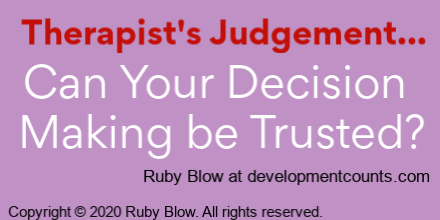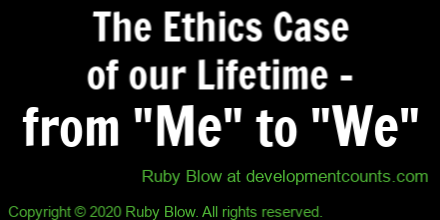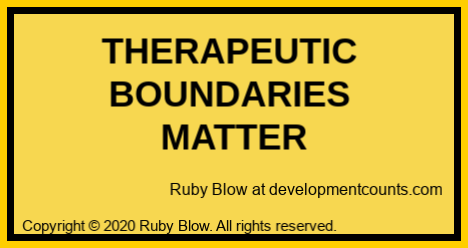The Concept of Self Care
Self care is a concept that mental health professionals talk about frequently. We all have a general idea about what it means but I think it is worthy of definition and exploration. To me it means “remembering to take care of oneself.”
Thankfully for many people this is a non-issue. They regularly and naturally make sure that their own needs are addressed. For others, it takes a more conscious effort.
#SelfCareMatters
In my Facebook posts on my personal and professional page, I like to remind myself, my friends and colleagues to take some time to do things that are purely about something that “I” need or conversely what “they” need. These posts include the hashtag (#) “selfcarematters.”
From the outside it could look like I’m leading a stress free, care free life. It may appear that I am unburdened by the stress of being a counseling professional for the past 20 years. Nothing could be further from the truth. I experience stress just like everyone else. However, what I’ve actively been implementing for years (about 10-12 years) and continue to try to improve is placing just as much importance on my self care practices as my “other care” practices.
I don’t know if anyone follows my hashtags but me. However, I occasionally click on that emboldened link to track my self care posts and see where my focus is and what seems to be missing. For those who aren’t familiar, when I click on my #selfcarematters in Facebook – on any of my posts with that hashtag (#) – it shows me all of the other posts that have the same #selfcarematters.
I’m sharing a little bit about what this means for me. I am hopeful that this will support you in figuring out what self care means for you. If you find that you are not sure, it’s important to define it so that you can practice self care consciously.
One thing that is certain, if you don’t have an active intention and plan around self care, you can find yourself consistently putting yourself and your needs last.
The way I practice self care involves multiple areas of focus. Chief among these are:
- setting limits
- movement
- music
- touch
- water and nutrition, oh and
- sleep (my toughest one)
#1 Setting Limits
Simply put, setting limits involves being conscious and selective about my “yes’s” and my “no’s.” I’ve had some success in the field (when I say success I mean many opportunities); with that success comes many decisions.
Decisions like:
- what projects to take on;
- what leads to follow;
- what services to offer;
- when to stop offering certain services;
- determining fees and not accepting opportunities that don’t align with those fees;
- determining what needs to be focused on each hour, each day, each week, each month, each year (it’s all connected).
- determining my specialties instead of allowing everyone else to define them. Yes I should offer what people want, but only if it is in my wheel house and only if it is in my area of competency.
Setting limits is also inherent in the rest of the self care practices that are important to me. But I’m noticing more and more that those are hindered when I don’t set limits around the work itself.
#2 Movement
I love to move. It is an important element of self care for me. As a counselor, supervisor, consultant and trainer I can find myself sitting down an awful lot! I’ve been wearing a Fitbit since July 2015 and it is an amazing tool for getting at the truth about how much I am moving or not moving.
I’ve always enjoyed working out. I remember in undergraduate school waking up before classes to do step aerobics in my room before facing the rest of the day. I generally, with a few exceptions here and there, have engaged in regular physical activity. During the periods of time when I didn’t workout my weight would fluctuate and my knee pain would increase.
When I am moving regularly, 30-60 minutes of cardio activity 6-7 days a week, I feel better, more energetic and more capable.
For the past 5 weeks I’ve been doing a new dance workout. However, I also go to Tai Chi/Qi Gong class twice a week.
Even with regular work outs, it is easy to get far fewer than the recommended 10,000 steps per day to reduce multiple poor health risk factors (diabetes, heart disease, arthritis, etc…); when I was not collecting this data, it was difficult to know if I was hitting this number consistently.
#3 Music
Another important element of self care for me is music. I listen to music to elevate or lighten or enhance my mood. I am not prone to sad songs, or angry songs or heartbroken songs. Yes, some of those are beautiful and expressive and helpful at times. But I choose music that encourages and uplifts.
Some of it is very pop centered or R & B centered music. Some music just takes me back to the 80’s. In general, music and lyrics have an opportunity to sync with the subconscious as well as the conscious mind.
Yesterday’s main them song for me was Leann Womack’s “I Hope you Dance,” a beautiful song about not sitting on the sidelines in life.
#4 Touch
Touch may be my favorite experience related to self care. It is about receiving and about interconnected-ness. It is about the ways we give and receive comfort. Many people in our society are touch deprived. They may receive very few hugs. No one ever holds their hand. No one tucks them in or kisses them on their forehead.
The reasons people are touch deprived are vast. I have met many partnered and married people who are touch deprived as well as children who mostly receive punitive touch if any at all. Others are widowed, single or “don’t like to be touched,” which is valid but always reminds me of someone who has adapted to the loss of one of their senses. They are enhanced in other ways and have learned to live without touch.
For me, one of the safest and most reliable ways to get my touch needs met is through therapeutic massage. I go every two weeks.
It helps reduce chronic pain and is over all very relaxing while at times being challenging. Challenging because massage is about receiving. There is a vulnerability when you are on someone’s massage table. Some parts of me hurt or feel sore and it can be unexpected. Sometimes it feels like my whole body is filled with raw nerves.
I hold tension in my jaw and my lower back, oh yeah and in my shoulders. The list goes on. Massage give me permission to receive, to go inward to relieve tense muscles and best of all not to think for an hour and 15 minutes.
Some people don’t get massages because they “don’t like it” or think that they “can’t afford it.” It may not be for you. But it works for me and I searched until I found the right location; the right massage therapist and a fair price point on both sides.
#5 Water and Nutrition
An important element of self care is what I am consuming. Hydration is critical to well-being. I drink water throughout the day. I work diligently to address what keeps me from getting 64-80 oz of water a day. That is my personal goal.
I found a container that I like to drink out of, it’s not too overwhelming in size and it has a straw. I refill it through out the day from a larger container of cold water. I track my ounces consumed on my Fitbit app.
Nutrition is tougher but I am doing better with creating supports for myself around nutrition. My strategy right now involves eating 3 small meals a day and 2 snacks. My goals include protein, vegetable, fruits, nuts and non-dairy yogurt.
I’m in an accountability group where we share pictures of meals each day and receive recipes. To do this nutrition plan effectively and consistently, I need to create space in my calendar for snacks. I was accustomed to 3 large meals a day. Not the best for my energy level or my metabolism.
#6 Sleep
Last but not least for me, self care involves getting adequate rest and sleep. In a recent conversation with my sister I heard myself saying out loud “sometimes I feel like sleep is interfering with my life.”
Yes, kind of problematic! The idea that sleep is getting in the way of other things I want including time to relax and be awake, is somewhat absurd. But saying the words out loud helps me confront the reality… and my Fitbit also reminds me of every morning. It tells me how much I slept and how often I was awake or restless.
The truth is not getting enough sleep sabotages other goals…it can increase chronic pain, causes me to eat unhealthy foods to try to leverage more energy and generally makes movement more painful. I’ve had osteoarthritis of the knee for about 14 years now. Let’s just say life is better when I’m well rested. So on that self care note, it’s time to wrap up this lengthy post.
Self Care and You
What does self care mean for you? What do you need to focus on and what kind of support or accountability do you need? I’d love to hear from you on this one. Don’t lead with advice for me…just come out on this limb and share your truth. I know all of my readers are expert advice givers!
Copyright © 2016 Ruby Blow. All rights reserved.
Share your thoughts on Linkedin, Facebook, Twitter





